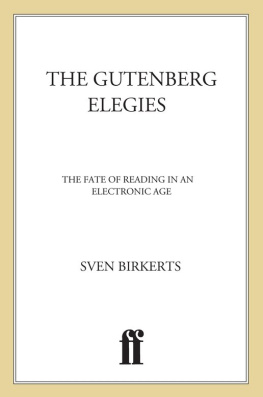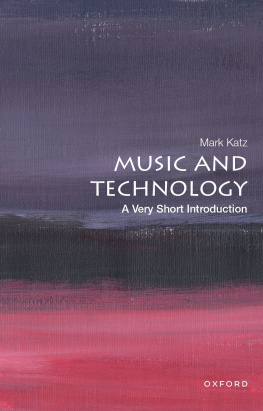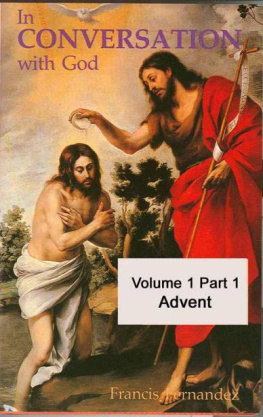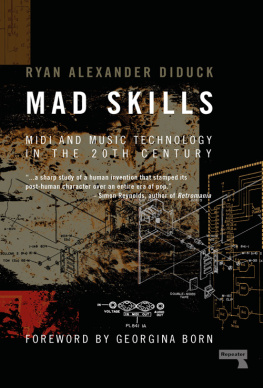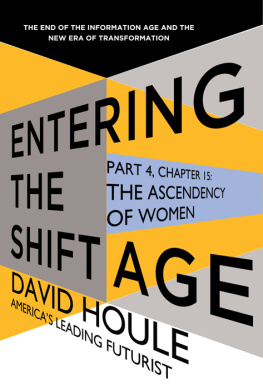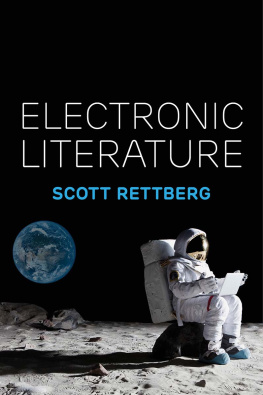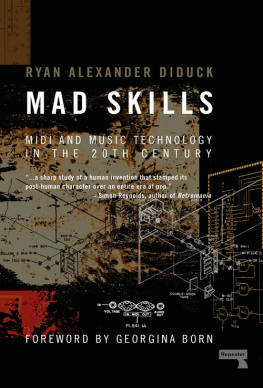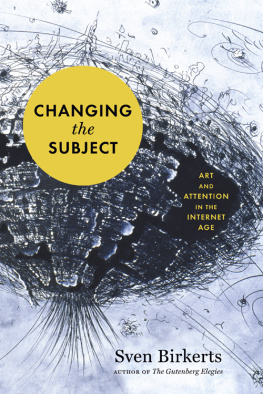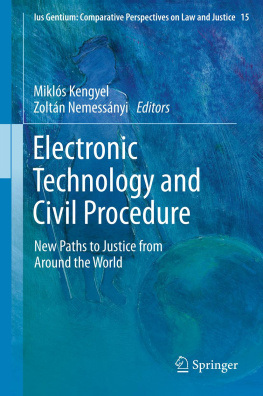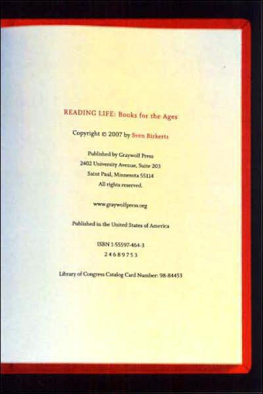The Faustian Pact
I VE BEEN TO THE CROSSROADS and Ive seen the devil there. Or is that putting it too dramatically? What Im really saying is that Ive been to the newsstand, again, to plunk down my money for Wired. You must have seen itthat big, squarish, beautifully produced item, that travel guide to the digital future. To read the magazine and to look at it (one does spend a great deal of time looking at Wired, checking out the ads, turning it this way and that to follow the little typographic trails) is almost to be persuaded that the future is here and that it can work. That ingenuity, design intelligence, and the capabilities of the microchip will soon liberate the world entirely from its sooty industrial roots. Wired gives us our old planet repackaged as a weightless environment, more dream than matterinformation moving through cyberspace at the speed of thought (intelligent thought), with interactive resources putting people in control, allowing them to tailor the fit of their experience; digitally programmed words and visuals and sounds coalescing in ever-fresh multimedia combinations; pools of the like-minded gathering into networks, establishing grassroots power bases via Internet; virtual reality opening up realms of sensation, dazzling retreats just adjacent to our own ever more depleted world and so on.
The ads and the graphics are finally more seductive than the excitable proselytizing of the writers. We are taken most by the look of it allthe compact, crisp, high-resolution design that inspires confidence, that allows us to revere the near-mystical power of the concealed microprocessors. Bold colors, sans serif type fonts, unexpected layouts. Everything orchestrated to say: That was then, this is now . Alongside Wired , dominantly print-driven vehicles like The New Yorker or even The Paris Review look dowdy, Victorian. Unbroken columns of print suddenly seem like visual molasses.
Yes, Ive been to the crossroads and Ive met the devil, and hes sleek and confident, ever so much more with it than the nearest archangel. He is casual and irreverent, wears jeans and running shoes and maybe even an earring, and the pointed prong of his tail is artfully concealed. Slippery fellow. He is the sorcerer of the binary order, jacking in and out of terminals, booting up, flaming, commanding vast systems and networks with an ease that steals my breath away. I dont hate himI admire and fear him, and I wonder, as I did in high school when confronted with the smooth and athletic ones, the team captains and class presidents, whether I would not, deep down, trade in all this doubting and wondering and just be him.
I have heard pornographic books and magazines referred to as masturbation aids. Wired is, for me, of that ilkexcept that it does not get me thinking dirty thoughts, it just gets me thinking. But I use it as one might use something from the aforementioned category: to put me on a very specific mind-track. I buy the magazine and read it and study it in order to engage myself in what I think of as the argument of our timethe argument between technology and soul. Every time I open the covers and find myself slipping into that most beguiling reverie of the near future, I have to ask: Is this what we want? Do we know what were doing? Do people understand that there might be consequences, possibly dire, to our embrace of these technologies, and that the myth of the Faustian bargain has not become irrelevant just because we studied it in school?
To me it is very clear that the process is well underway and that it is not likely to stop. From our president on down people are smitten, more than they have been with anything in a very long time. I cant open a newspaper without reading another story about Internet or the information highway. The dollar, not the poet, is the antenna of the race, and right now the dollar is all about mergers and acquisitions, as seen in the bidding war for Paramount, the fierce battles being waged for control of the system that will wire us each to each and will allow us, soon enough, to cohabit in the all-but-infinite information space. If weare separate on earth because of geography and physics (two bodies cannot inhabit the same space), we will be piled together like transparent wafers in cyberspace. The dollar is smart. It is betting that the trend will be a juggernaut, unstoppable; that we are collectively ready to round the corner into a new age. The dollar is betting, as it always does, against the soul.
Soul a vast, elusive word, and I need to be careful not to use it indiscriminately. What do I mean by it? Although I dont want to rule out its religious sense, I am not using it, as believers have for centuries, to designate the part of ourselves that is held to be immortal. My use of soul is secular. I mean it to stand for inwardness, for that awareness we carry of ourselves as mysterious creatures at large in the universe. The soul is that part of us that smelts meaning and tries to derive a sense of purpose from experience. It is the I that speaks when we say, Ive always believed as opposed to the I we refer to when we say I went to get the car fixed this morning. I dont know that I can get more precise about itI dont know that precision is called for. Soul is our inwardness, our self-reflectiveness, our orientation to the unknown. Soul waxes in private, wanes in public. We feel it, or feel through it, when we are in sacral spaces, when we love, when we respond to natural or artistic beauty. Soul may be elicited in many ways. We comprehend it unthinkinglywe either know it as a resonance, a presence, or we deduce it, negatively, from a feeling of absence. When we cannot get clear, cannot feel the importance of something we know to be important; when we harken to images that take us from the present that we feel trapped in: images of childhood, of isolated retreat in nature. Except in situations we deem communal, where we have communion with other souls, soul is private. Solitary. Said Emily Dickinson, The soul selects its own society. And as I write this I think that, yes, there is something Dickinsonian, something tremulous and antiquated about it all. I hear ticking clocks and footsteps in empty houses. The inward self collects around a center, defines itself in its separation from others. What an odd notion. I see Old Nick winking and I find myself wondering if we might not indeed be ready to push onto something new, to put behind us once and for all this melancholy business of isolated selves trudging through a vale of tears.
This is where I often end up when I start thinking about these thingsI feel as though a train has gone racing by, leaving me on the platform watching the swirl of candy wrappers. Yet, were the train to stop for me, I would not get on. Something holds me back, a fear not unlike what Ive known on the brink of certain relationships. Then I held back because I sensed that to plunge would be to change myself as a person. Not a bad thing necessarily, but just not what I wanted then. The disinclination I feel about the digital future is stronger, more certain, but the fear grows from the same root. I see the situation in Faustian terms, as an either/or. To embrace the microchip and all its magic would be to close myself off from a great many habits and attitudes, ones that define me to myself; I would have to reposition myself on the space-time axis. I would have to say good-bye to a certain way of looking at the world because that way is bound up with a set of assumptions about history and distance, and difficulty and solitude and the slow work of self-makingall of which go against the premises of instantaneousness, interactivity, sensory stimulation and ease that make the world of Wired attractive to so many.

